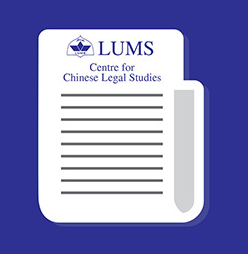
The present circumstances appear as a recurring nightmare that we can’t seem to wake up from. Every day we sip our morning coffee with the news of how Covid-19 has brought the world community to its knees. Such unprecedented health emergencies, especially for a country like Pakistan, calls for re-evaluating our priority areas of action and re-assessing how the state understands human security.
With the world swiftly moving towards non-traditional security threats, having a policy framework in place that caters to public health crises is just as important as the National Action Plan (NAP) for terrorism. Unfortunately, the strategic culture of our region and the geographical proximity shared between unfriendly countries, establishes conventional defence as the primary source of concern to ensure national security.
As a result, the national discourse recognizes border security as the only pre-requisite to safeguard human security in Pakistan. This influences the connotation of human security as being based solely on traditional military grounds, rather than possessing health, environment, food and other dimensions under non-traditional security as well.
As experts warn us of the ever-worsening public health situation, the threat of new diseases, and resumption of other deadly viruses; it is pertinent to rationalize the approach of Pakistan’s policy tools to effectively deal with a public health emergency.
Unfortunately, after witnessing the initial haphazard response surrounding Covid-19, it appears that Pakistan lacks the required legislation and policy directives on emergency health measures, disease preparedness, and containment methods. It visibly fell short of promptly responding and adopting the required policy protocols to contain the disease.
Changing National Attitude: Dealing with Crises
To mitigate such a sketchy attitude towards unforeseen calamities, the state institutions need to deconstruct the common understanding of national security which is presently, merely a romanticism with secure borders.
Our national discourse must incorporate elements of non-traditional security threats to re-define what human security means for Pakistan, and what the national security must entail by extension. This re-orientation of national security will preemptively instigate the relevant institutions to develop necessary policy response and actions against not only infectious diseases but also for food scarcity, natural disasters and climate change among related others.
CPEC for Revamping the Health Sector
These can further positively influence our country’s policy choices when entering into socio-economic relationships with other countries, as has been happening in case of military alliances and engagements. For example, it is unfortunate that mega-projects such as the China-Pakistan Economic Corridor (CPEC), do not focus on any development in the health sector.
One may argue that CPEC, being an economic project, cannot cater to all segments of the society. However, if actual human security was being given a priority during all bi-lateral and multi-lateral agreements (as is extended to our current understanding of national security), healthcare would also have been considered in the same vein.
Therefore, in the context of the recent turn of national events, and a mutually utilitarian point of view, economically fruitful outcomes under CPEC must factor work in the health industry of Pakistan as well. This can be carried forth by setting up industries to develop healthcare technology, production of personal protection kits and medical equipment, and manufacture of disinfectant tunnels among other innovative industrial solutions for healthcare, disease control and preparedness. These may serve as an additional corollary under the existing Special Economic Zones (SEZs).
Framework for Future Policies
In this purview, it is essential that state policies are designed to predict future risks, and develop frameworks that deal with potential calamities. The lack of immediate response and action during the on-going pandemic has been indicative of our myopic policy structures.
This case gravitates deeper than mere political bashing over which government has proactively delivered on the healthcare front. It indicates how our state’s policy behaviour must not be tailored to fit the regional geostrategic context alone. It should rather be directed by elements of human security, which can substantially create a difference in our human development index as well. Similarly, this can be made possible once the government can redraft its education, health and economic policies, and accrue maximum advantage out of them under a common platform.
It is therefore proposed that a special task force must be constituted, which may comprise all relevant ministries and divisions to analyze the immediate, short-term and long-term measures needed to address potential emergencies at a non-military war footing. This would also require necessary consultation and support from all administrative units of Pakistan, as well as from willing neighbours and relevant international organizations. Such a comprehensive input will create a coherent plan of action with every stakeholder on board for speedy responses.
The author is a Research Associate at the Centre for Chinese Legal Studies.
This article was originally published in the Global Village Space on the 18th of April, 2020 and can be accessed here.

